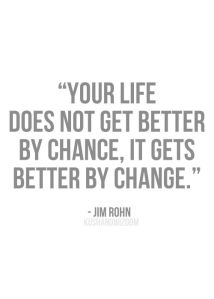My feet were wet. As I stood in the boggy marsh on a moor in West Wales looking out (through the rain) I remembered that my wellies had holes in them. I knew they had a hole in them but replacing my wellies had not been a priority. It had fallen further and further down the list of ‘things to do’. Usurped by the demands of being a mum whose priority is to make sure no-one else’s wellies have holes in (metaphorically speaking).

That’s what we do as mums. Most of us put up with the wet feet, as long as our family feet are dry. Often we go without so our kids don’t have to. We’re not being martyrs it’s just that doing this is an instinctive drive. It also seems to have become part of the job description. For some people, this runs parallel with the expectation that we also work outside the home (where we often continue to prioritise the needs of others, and heap praise on others while shunning recognition of our own achievements; google ‘imposter syndrome’). We may also have to juggle significant caring and support roles for other family members; extended family, friends and increasingly our ageing parents (because let’s face it, that’s what women do). Oh and by the way, (rule number 2) we must never resent this, and if we do we must manage the guilt that follows the resentment. NB. Chaps, this is an insight into how women’s minds work – and yes, it is exhausting. And yes, I realise I am overgeneralising and there are exceptions to the rule, but stick with me…).
Even for those of us who actively promote the necessity of taking care of ourselves so we can care for others can struggle. The fact that we need to be a ‘selfish mother’ to be the best mother we can is often still frowned upon, even in 2017. It can feel hard for many mothers, working mums, single parents, and especially those living with chronic illnesses like Multiple Sclerosis. Mothers who may be isolated, or who frequently feel overwhelmed by the demands of the daily tasks of living. There is precious little time or energy to even think about one’s own health. Many report being weighed down by the “guilt” that they can’t be like “other mums”. That their children miss out.
Being diagnosed with a serious chronic illness, like MS or cancer can leave you feeling entirely desperate and afraid. The fear and anxiety alone can be overwhelming. Add to the mix some ‘mother guilt’ (the G word again…) about what this means for your children, and the impact of illness can feel unbearable. Not being able to play with your children in the snow, run in the ‘mum’s race’ or simply being too exhausted to cook healthy meals leaves mothers feeling so many confusing and heart-breaking emotions.
For any mum, it is hard to prioritise your own needs over the needs of her family, but when you also have a condition that is already affecting your family the chances are you want to minimise this, not shine a light on it (“oh me, I’m off to a ashram in the hills for a week – make your own tea and watch that busy road!!!”). But, and this is a very important but. This needs to change. We need to find a way for this information to reach those mums who are disconnected from the MS research. Who don’t know anyone else with MS (who isn’t 70 and in a wheelchair). The evidence from the HOLISM studies show that these changes can change the course of their illness so may well be worth the effort. You may be able to support that mum.
We know from the longitudinal studies reported by Prof Roy Swank, and the emerging evidence from the HOLISM studis at the The Neuroepidemiology Unit at the Centre for Epidemiology and Biostatistics at the University of Melbourne, that making significant changes to diet and lifestyle can slow down the progression of MS symptoms, and for many it can halt the illness altogether. The impact of such dietary changes is becoming more and more evident in mainstream media too – with the popularity of entrepreneur Ella Mills of ‘Deliciously Ella’ a great example of healing auto-immune disorder through diet and lifestyle. The key to these success stories is that people were able to press pause on their ‘normal life’. They were lucky enough to find the information they needed to make the changes. They made changes to their diet and lifestyle. Many relinquished some of the demands being made of them in order to give them the best chance of recovery.
There are thousands of women like Ella Mills, and thousands of women with autoimmune disorders like MS. The MS Society estimates there are 12,000 women between the age of 20-40 in the UK, and many of those are raising families under a cloud of uncertainty about their future health.. Lots of these mums are isolated and don’t know other mums with MS – so they just don’t talk about. It’s not the easiest of things to casually drop in the conversation at the school gates…
Asking mothers to take time away from their families or their ‘role’ as a mother, to take for themselves is a very big ask. It can feel impossible for people who already feel they aren’t being a ‘good enough’ parent to take even more time for themselves. Throw into the mix a pinch of denial fuelled by our fears, a smattering of lack of support from a husband, or a teaspoon of ‘being a single parent’ and the odds are stacked against you. So on International Women’s Day and with Mother’s Day fast approaching I’m hoping people can help me spread the word in the hope that women and mothers with MS, and other chronic health conditions know it is okay to take the time they need. Feel able to make the changes they need to make. In fact its more than okay, it’s essential. It will give you the best chance to be the best mum you can be.
If you think this is an important message or know a mum who’s living with a chronic health condition then please show your support by sharing this.
For more information see https://overcomingms.org/holism-study/
@myomslife www.memsandbeingmum.wordpress.com.

